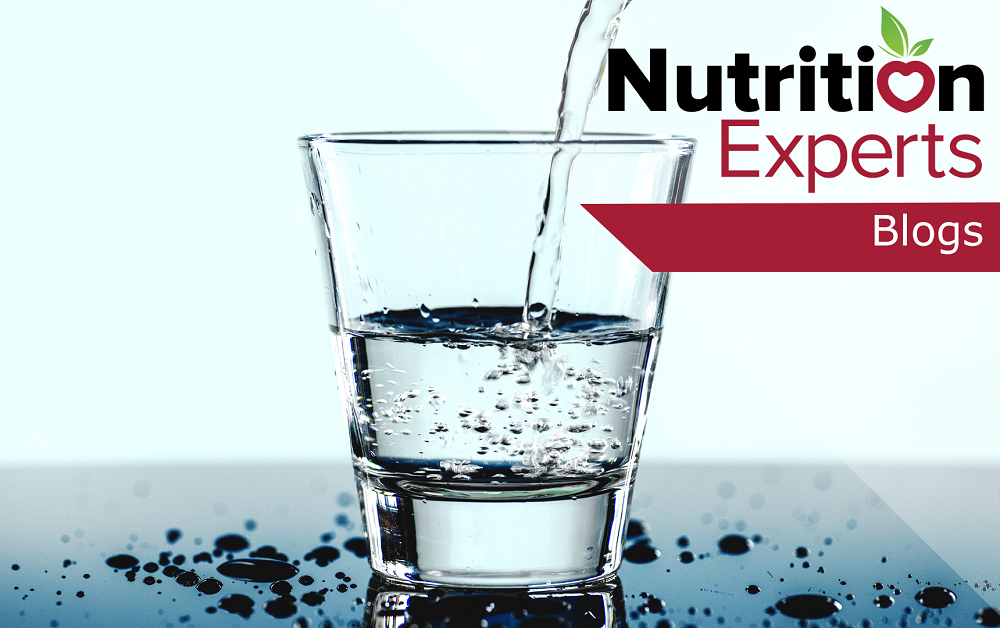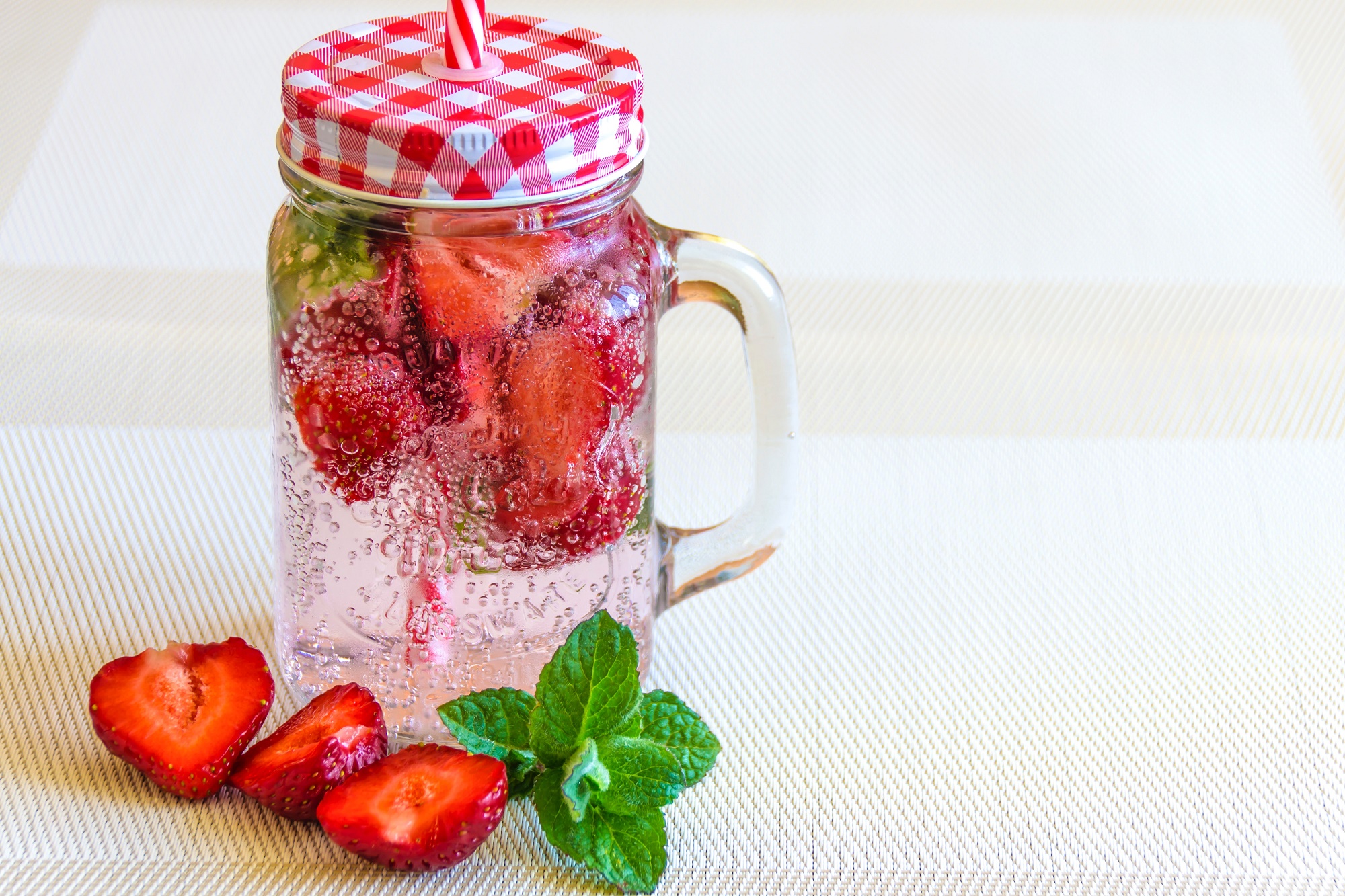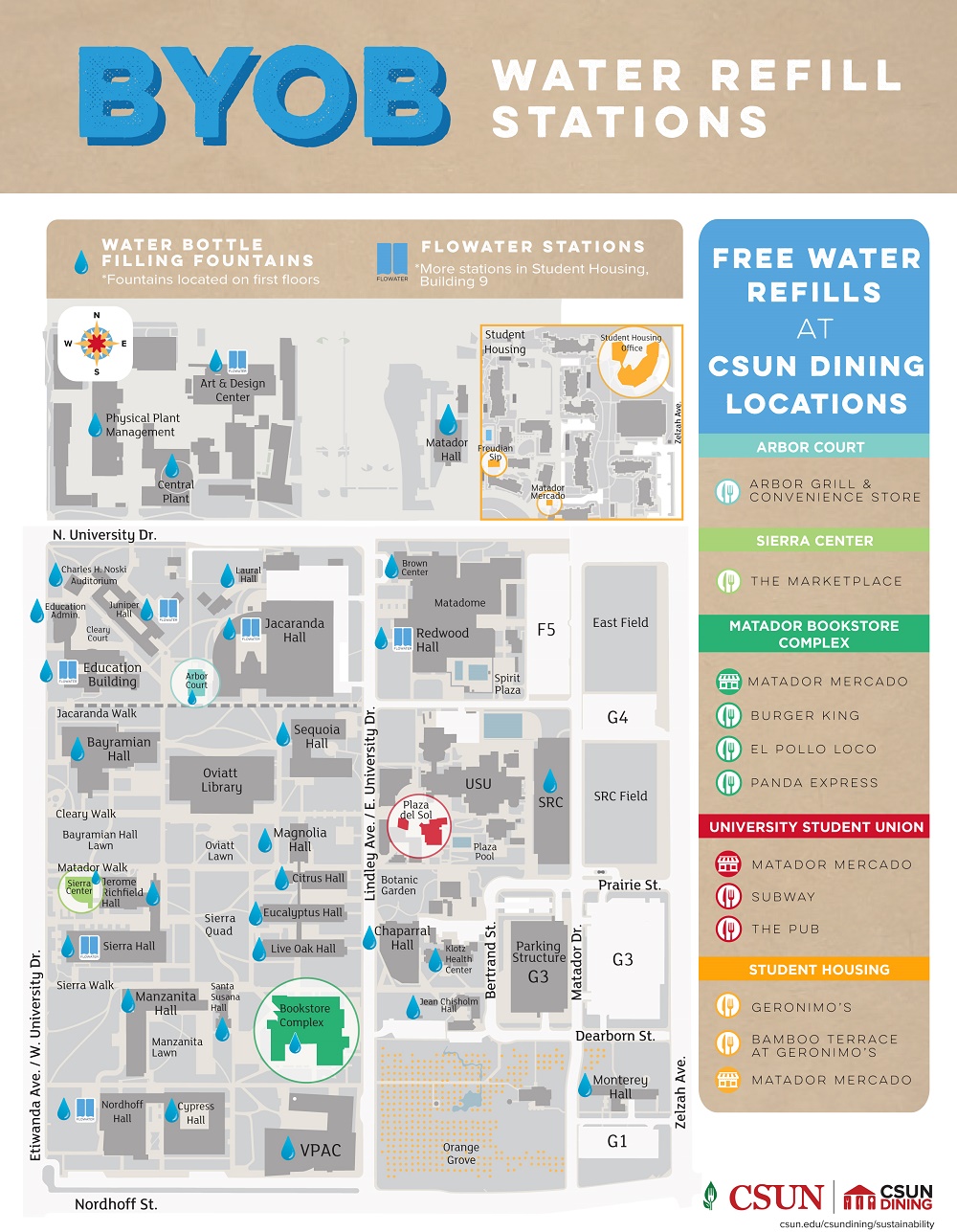
Image: Rawpixel/Unsplash
By: Tania Menachegani Khachatourians, B.S., CSUN Dietetic Intern
Water is an essential part of our everyday life and should be taken on a daily basis for proper bodily functions. The human body can survive weeks without food, but without water we only have a few days to survive.1 Therefore, keeping our bodies hydrated is the most important nutritional need above all else!
What are the functions of water in our body?
A great part of our body’s content consists of fluids. Making sure to renew and replenish the fluids lost daily is essential for many functions. Water has many purposes; however, its critical use happens inside of our bodies. The main functions of water includes giving the form and the shape of our bodies, using it as the reagent to allow the different reactions in our body to occur, acting as a lubricating agent, transporting substances and waste, and is the primary way of the body’s cooling system.1 Water is lost many ways including “urine, feces, respiratory water vapor, insensible water loss from skin, and sweat,” but it can all be replaced by simply drinking water.1, 2
What are the benefits of staying hydrated?
Keeping your body well hydrated may provide the following benefits:
- May reduce risk of developing some diseases relating to kidneys1
- May relieve headaches caused by dehydration3
- Decreases symptoms of constipation 1, 3
- May decrease inflammatory response during exercise when dehydrated 1
- Improve cardiovascular health and reduce the risk of developing heart diseases and hypertension 1,3
- Supports health of urinary tract, including kidneys, which can prevent kidney stone development and urinary tract infection 1, 3
- Improve mental and physical performance 3, 4
- Prevents disruption to cognitive mood and functions 3
- Improves alertness 3
How much water should we drink?
The amount of water intake recommended should be individualized, since physical activity level, body size, environment, temperature, health status, and energy expenditures can vary from one person to another.3, 4 The commonly known recommendation for hydration and fluid replacement has been the 8×8 rule, which suggests to drink 8 ounces of water, 8 times a day. Although this suggestion has been shown to be effective and is closely matching the recommendations, it has no scientific basis.1 Based on the Dietary Reference Intakes for Water, for men and women it is recommended to drink an estimated 2-3 liters of water or fluid per day.5 This is about 68-101 ounces per day or 8.5 – 12.6 cups per day.
It is important to remember that individuals with any health conditions may have higher or lower fluid needs. Other factors that can influence your body’s specific need for staying hydrated may include hot weather, high level of physical activity, having a fever, diarrhea, or vomiting.2 Following up with a healthcare physician and registered dietitian is highly recommended.
Although water can be the medicine to many problems without prescription, drinking excessive amounts of water may cause water intoxication. This is caused by the over dilution of the sodium levels and electrolytes in the blood system.1 In order to have a general guideline for your hydration, the Academy of Nutrition and Dietetics recommends to “drink enough for your urine to be mostly colorless and odor-free.”4 A visual guide to remember is that the color of the urine for a well hydrated individual has a light color such as a lemonade color, but for a dehydrated individual it is a darker color such as apple juice.6 Log your water intake daily and compare it to the urine color to see your hydration status.
How can we meet these recommendations?
Although water itself is the optimum source of hydration, it is not the only way. Below are a few tips on how to meet your daily recommendations for keeping you hydrated.
Eat your water!
Hydrate with fruit and vegetables high in water content like cantaloupe, strawberries, cucumber, and watermelon.3
Make a smoothie
Try blending your favorite fruits with ice cubes for a fresh summer refreshment (see below for recipe).
Drink nutrient-rich dairy and fortified beverages.4
Carry a water bottle
Bring your own reusable bottle everywhere you go.2
Choose water most often
Limit and moderate drinks with high sugar content, concentrated juice, caffeinated and salty drinks that can cause dehydration.4
Fresh Strawberries and Mint Refreshment

Image: PhotoMIXLtd/Pexels
Try this with a reusable infuser water bottle for an on-the-go hydration.
Recipe by Sonja Goedkoop MSPH, RD 7
Ingredients
- ½ cup of sliced fresh strawberries
- Sprigs of fresh mint (Rinsed)
Directions
- Add strawberries and mint to 1-2 quarts of fresh cold water.
- Refrigerate for several hours to release the flavors and enjoy!
Rehydrate On Campus!
Did you know CSUN has installed water refilling stations all throughout the campus? The CSUN sustainability center, is on a mission to reduce plastic bottle waste and has implemented water refilling systems here on campus. If you like your water to taste crispier, CSUN also provides five FloWater refilling stations across campus with the purchase of $3. Next time you run out of water, try refilling your reusable water bottles using these clean and free stations to hydrate while helping the environment through your refillable water bottles.

Hydration Challenge
Be a hydration inspiration! Next time you hydrate, take a picture of your reusable water bottles and tag us on Facebook, Instagram, or Twitter.
References
- Horswill, CA., & Janas, LM. Hydration and Health. American Journal of Lifestyle Medicine,2011: 5(4), 304-315.
- Water & Nutrition. Center for Disease Control and Prevention. October 2016. https://www.cdc.gov/healthywater/drinking/nutrition/index.html.
- Popkin BM, Rosenberg IH, D’Anci KE. Water, hydration, and health. Nutrition Reviews . August 2010:(68)8, 439-458. doi:10.1111/j.1753-4887.2010.00304.x.
- Taylor Wolfram. Nutrition Info about Beverages. Academy of Nutrition and Dietetics. January 2018. https://www.eatright.org/health/weight-loss/tips-for-weight-loss/nutrition-info-about-beverages.
- Dietary reference intake: Electrolytes and water. Institute of Medicine. The National Academies of Science, Engineering, and Medicine. 2005. doi: 10.17226/10925.
- Taylor Wolfram. Hydrate Right. Academy of Nutrition and Dietetics. May, 2018. https://www.eatright.org/fitness/sports-and-performance/hydrate-right/hydrate-right
- Sonja Goedkoop. Not Your Ordinary Water. American Institute For Cancer Research. November 2011. http://blog.aicr.org/2011/11/21/not-your-ordinary-water/?_ga=2.136527600.1195395509.1531765684-1333744238.1529686817.
